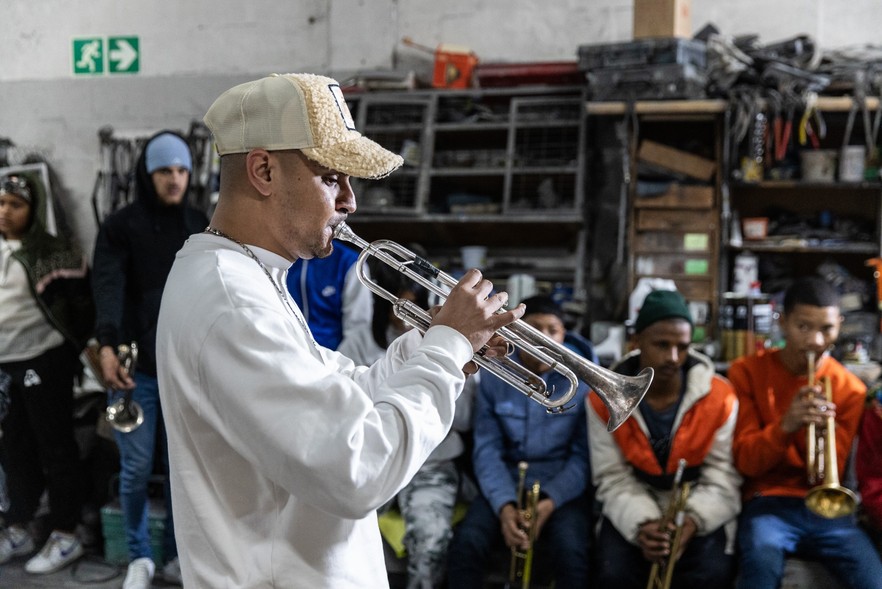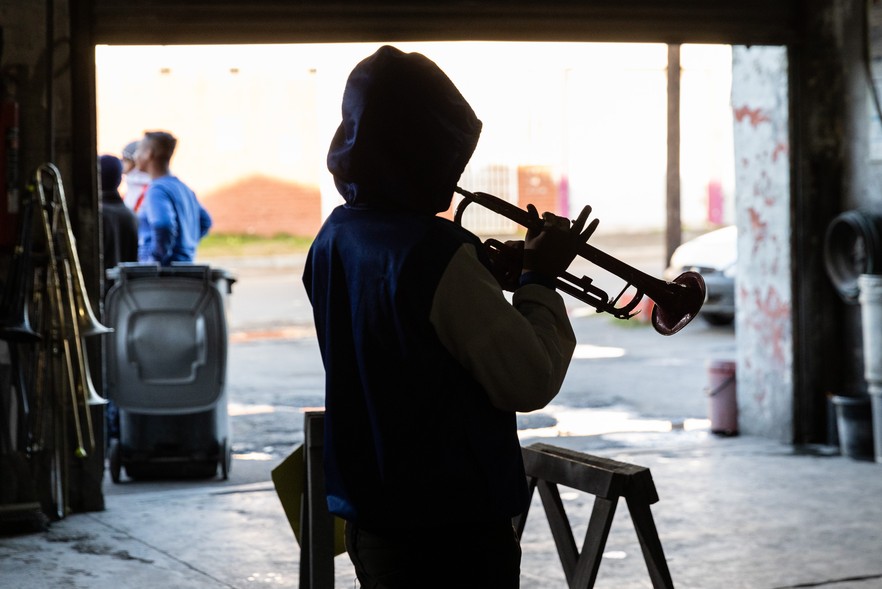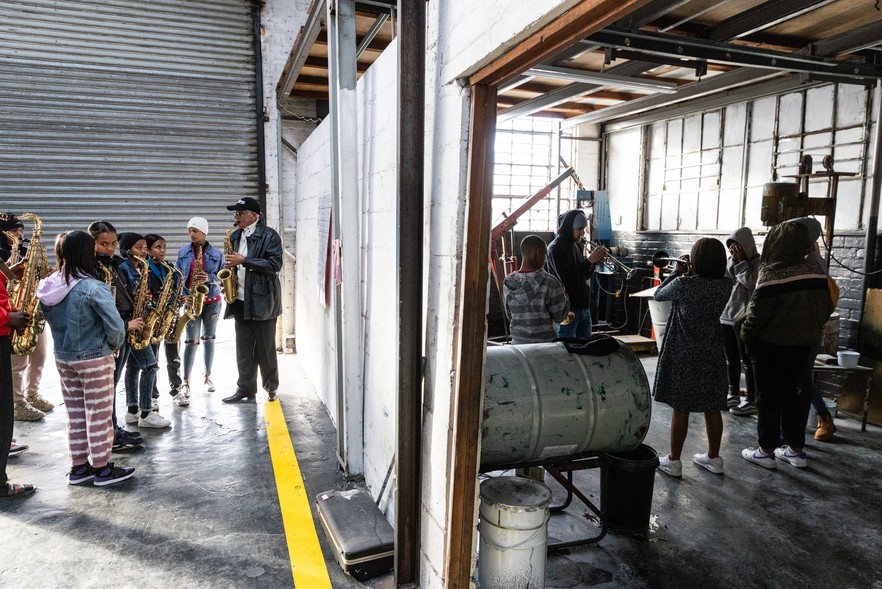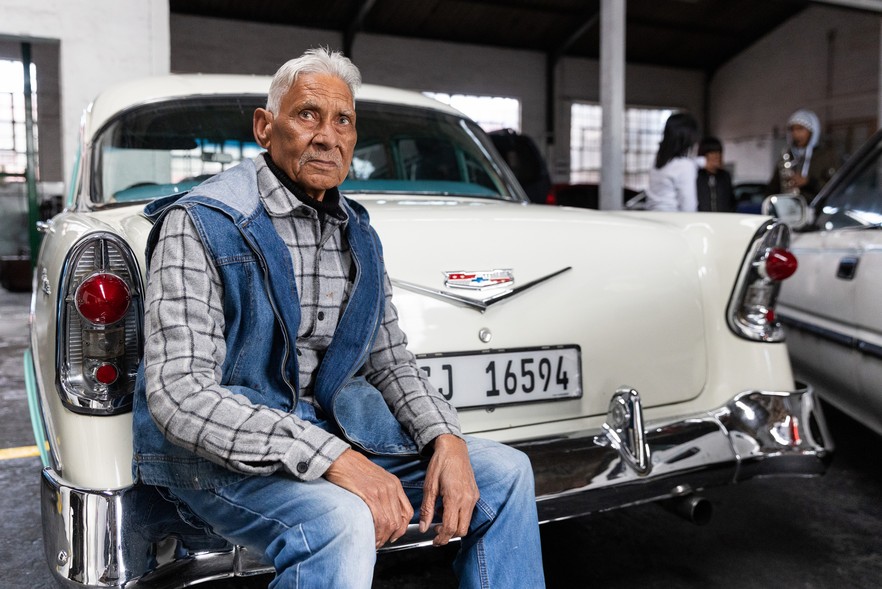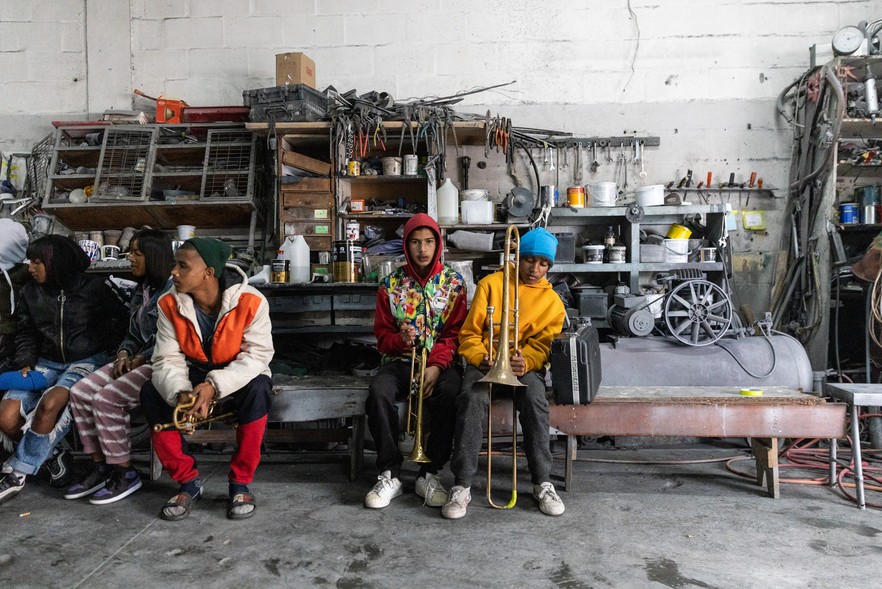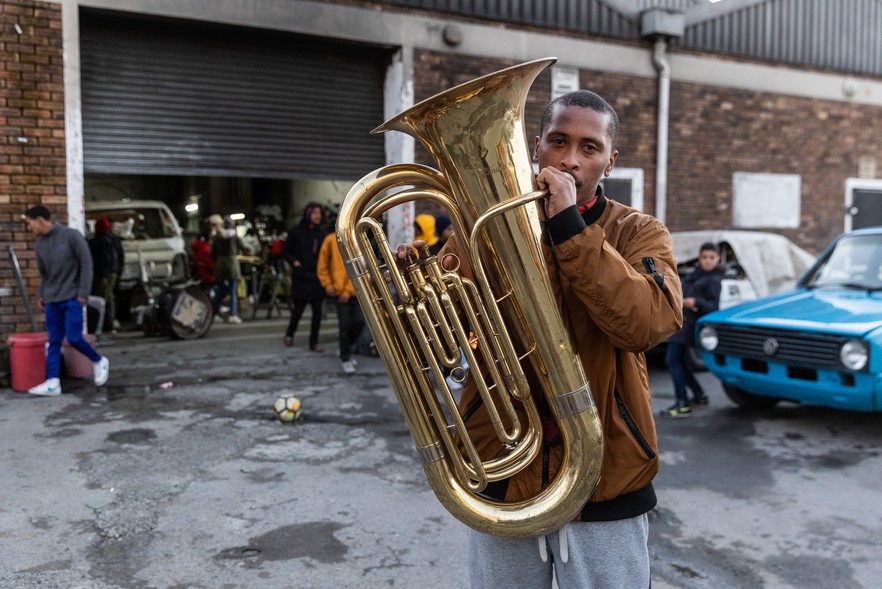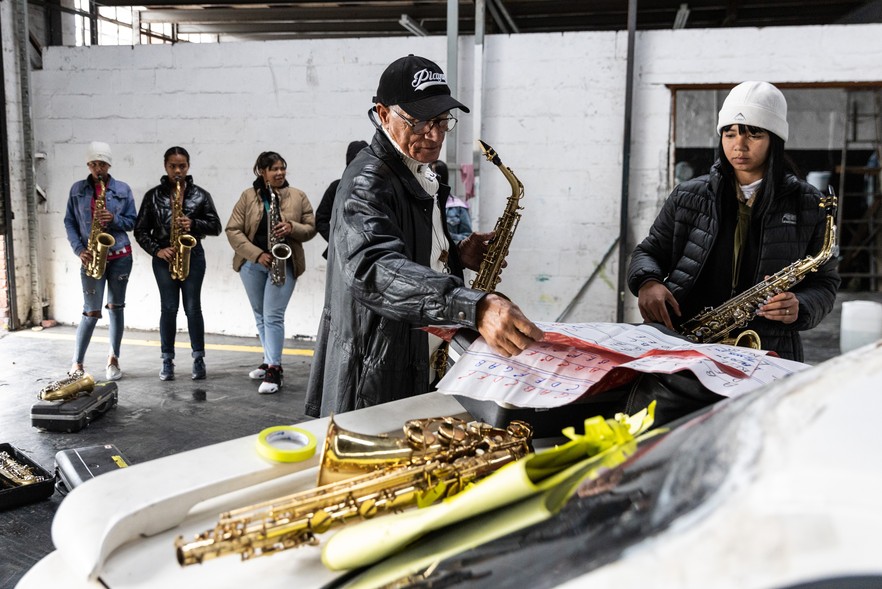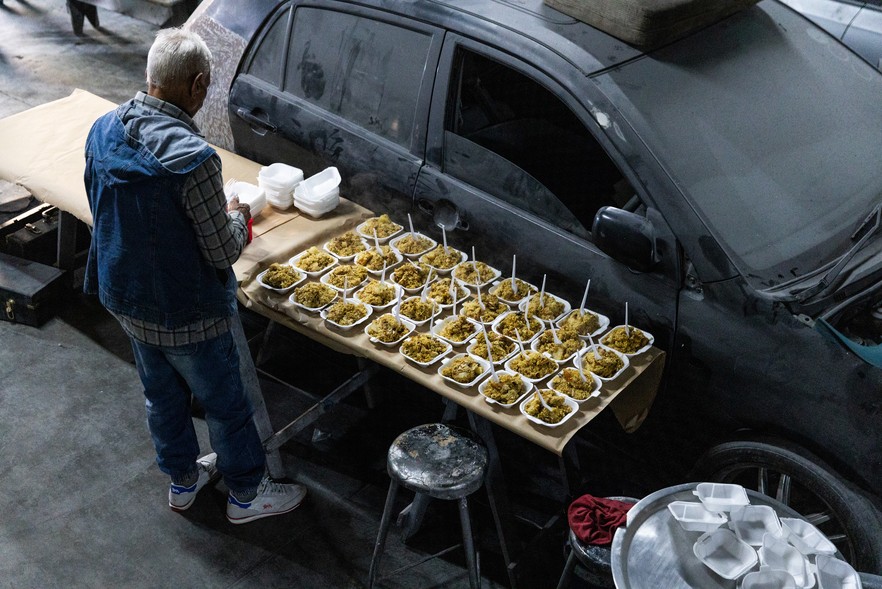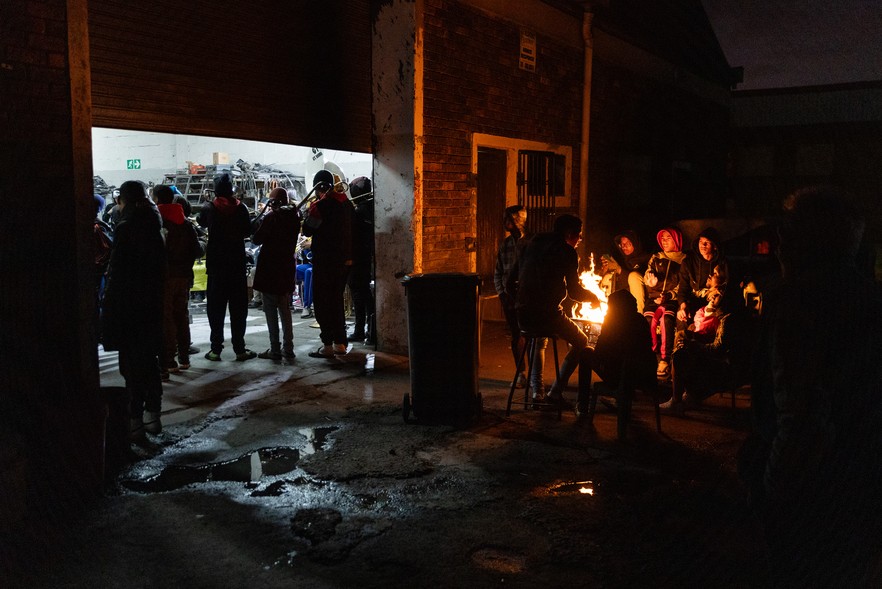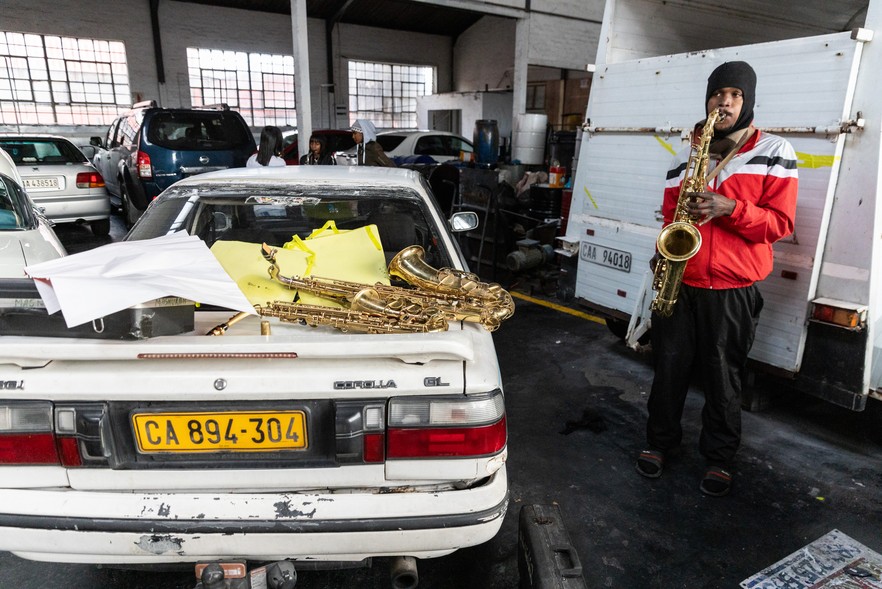Inside a Cape Flats minstrel band
“This is more than just a band. This is like a family.”
Ashrudien Davids plays “Lovely” by Billie Eilish and Khalid.
On Sunday afternoons, loud brass instruments can be heard from a panel beating shop in Athlone. Surrounded by dusty cars, paint tins and tools, it is here that the Silver Sounds Band has been practising their roaring goema music for over 15 years. This is the same music that is played by the minstrels or “Kaapse Klopse” every year.
A child practises his scales on a trumpet.
The band has over 70 musicians. It is made up of 18 trombones, 21 saxophones, over 30 trumpets, a sousaphone and a few bass drums and snares.
But this isn’t your average music school or band.
All the musicians come from working class areas on the Cape Flats including Mitchells Plain, Hanover Park and Bonteheuwel. The instruments are purchased by Salie Davids, the man who started the band.
“These kids haven’t got money. That’s why all the instruments belong to me,” says Davids. He bought the instruments with the money he makes from his panel beating shop – Athlone Body Works.
The musicians are split into different areas across two warehouses. They do this as the brass instruments are loud. After practice they join up and play together.
Davids says that the band began when his youngest son started playing the trombone in 2005. By word of mouth, other children joined and a small seven-piece band was formed. By the end of the year there were over 60 people practising together. Soon after, they played with their first troupe in the minstrels. Davids says that since then there has been a troupe that wants to hire them every year to play in the carnival.
Salie Davids started the band in 2005. Since then they have played with many groups and won numerous competitions.
“This is more than just a band. This is like a family,” says Davids. He says that the role of the band is to keep the children busy and off the street. They don’t tolerate any drug use in the band.
Davids says that the music school is meant to be open four days a week, but they have had to scale it down to once a week due to gang violence in the areas where the children live.
Children from as young as ten are part of the band. Some members who started as children are now married adults and still part of the band.
Nashief Isaacs has been with the band for 15 years. He says, “They’re like a true family to me”, and he has come here many times when he has needed comfort. He says that music teaches children discipline and it is up to them to use this discipline in their personal lives. “We’re like parents to them,” he says. Isaacs says the band keeps them away from negativity and surrounds them with positivity “and that’s the reason why they change”.
Davids says that he does this for free and the children don’t have to pay a cent, but running a big band like this is not cheap.
“My biggest expense is maintaining the instruments,” says Davids. The monthly cost for replacing parts and maintaining the instruments can easily come to R3,000. Davids says that they work a lot with beginners so mouthpieces get damaged or lost. He says that they’re struggling with funds and that there aren’t enough instruments for the number of children that are interested.
“I need trumpets. I need trombones,” he says.
Windsor Solomons and Charné Fredericks look through some of the music that they are practising.
“I love to teach, it’s my passion,” says Windsor Solomons, one of the volunteer teachers. He mainly teaches beginners saxophone techniques such as notes, scales and finger positions. He says they don’t use traditional sheet music as it would take too long. Instead they use letters to describe which notes to play.
Solomons also helps with the servicing of instruments. He says that to get a saxophone professionally serviced could cost R5,000, which is why they do it themselves. “The stuff is expensive,” he says.
Ashrudien Davids, the son of Salie Davids, is the bandmaster or conductor. He transcribes the music and gives well recognised melodies a more “Cape Town” flair. He loves working with untrained musicians that “want to learn”. Ashrudien says that his goal is to choose music that both young and old people will enjoy.
Salie Davids’s wife, Rukeya, cooked a pot of chicken akhni. The ingredients cost them R1,200. The pot is empty by the end of the evening.
Salie Davids does a lot more at his panel beating shop. He runs a Cape Malay choir. He also organises soccer games. The children are given a warm meal when they come to practice. Davids says that for some this might be their only meal for the day.
The children also get access to a social worker if they need one. Near the end of the year, he accepts a few children from Mary Harding, a school that focuses on children with learning disabilities. He teaches them practical skills such as cleaning at his panel shop.
Children huddle around a fire to stay warm while others practice.
“No one is looking after these kids,” he says.
Sometimes Davids put out a donation box where children can bring canned food or rice. When the box is full, this is donated to the children most in need.
Davids says that he does this because he wants to get these vulnerable children out of their environment and away from the “wrong people”.
“My hope for them is just to get them a good life,” he says. He tries to give them the love and care that “they don’t get at home“.
“That is what I give them. This is like my own children.”
Riaan Mclean warms up on the saxophone before practice.
Next: Living on the streets of Vasco: “Law enforcement keeps coming but I still return”
Previous: One tap for 1,000 families. And it’s been dry for seven years
© 2023 GroundUp. This article is licensed under a Creative Commons Attribution-NoDerivatives 4.0 International License.
You may republish this article, so long as you credit the authors and GroundUp, and do not change the text. Please include a link back to the original article.
We put an invisible pixel in the article so that we can count traffic to republishers. All analytics tools are solely on our servers. We do not give our logs to any third party. Logs are deleted after two weeks. We do not use any IP address identifying information except to count regional traffic. We are solely interested in counting hits, not tracking users. If you republish, please do not delete the invisible pixel.

